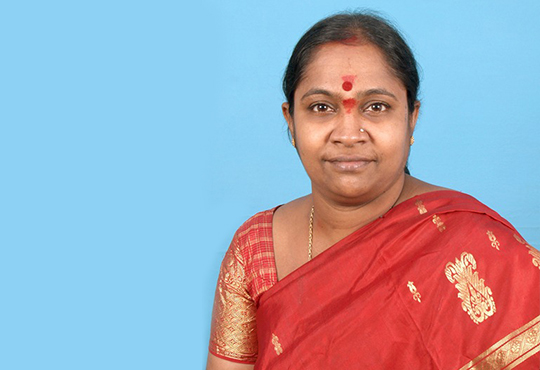Higher Educational Institutions In Tamil Nadu - Why Personalize Learning?

Dr. V. Mahalakshmi, Dean - Management Studies, Panimalar Engineering College
In the current scenario, education is a public good, contributing quality, educating citizens, improving human capital, and boosting economic development. The productivity, creativity, entrepreneurship, technological advancement among students has risen, which plays a vital role in securing economic and social progress. It strengthens democracy by imparting the necessary tools to every citizen to participate in the governance.
Quality is a multi-dimensional concept; mechanisms for quality assurance and management at the individual, institutional level are needed. Quality assurance in higher education has risen today topping the policy agenda in the higher educational institutions in Tamilnadu. The accountability factors, accreditation from a regulatory mechanism are essential in the processing when it comes to quality. Developing key performance indicators and benchmarks for assessing outcomes in higher education will have to be scrupulously undertaken in the educational institutions.
Higher educational institutions in Tamilnadu have seen tremendous growth over the past. However, the quality of the colleges and graduate students is a major concern now. With number of private engineering colleges, quality has got reduced which is reflected in the student's performance and on their job placements.
"Even though a few reputed technical institutions make progress in preparing engineering students as industry-ready professionals, many of them have yet to go a long way"
The increasing student community is a major challenge with the goal to provide access to all sections of society with high quality education. Presently, most of the higher educational institutions lack qualified faculty members, inadequate physical infrastructure and funds, inadequate preparation or lack of basic principles to understand the factual problems. The quality could be improved by updating the curriculum with the latest technology, incorporating student exchange programs, conducting expos, seminars, workshops, imposing compulsory internships, practical training exposure, inviting reputed companies for job placements and employment.
Even though a few reputed technical institutions make progress in preparing engineering students as industry-ready professionals, many of them have yet to go a long way. Due to the impact of globalization, technology improvement, and many other factors a developmental approach in higher educational institutions is required, along with a balanced distribution of budgetary resources to ensure that appropriate investments are made.
Quality is a multi-dimensional concept; mechanisms for quality assurance and management at the individual, institutional level are needed. Quality assurance in higher education has risen today topping the policy agenda in the higher educational institutions in Tamilnadu. The accountability factors, accreditation from a regulatory mechanism are essential in the processing when it comes to quality. Developing key performance indicators and benchmarks for assessing outcomes in higher education will have to be scrupulously undertaken in the educational institutions.
Higher educational institutions in Tamilnadu have seen tremendous growth over the past. However, the quality of the colleges and graduate students is a major concern now. With number of private engineering colleges, quality has got reduced which is reflected in the student's performance and on their job placements.
"Even though a few reputed technical institutions make progress in preparing engineering students as industry-ready professionals, many of them have yet to go a long way"
The increasing student community is a major challenge with the goal to provide access to all sections of society with high quality education. Presently, most of the higher educational institutions lack qualified faculty members, inadequate physical infrastructure and funds, inadequate preparation or lack of basic principles to understand the factual problems. The quality could be improved by updating the curriculum with the latest technology, incorporating student exchange programs, conducting expos, seminars, workshops, imposing compulsory internships, practical training exposure, inviting reputed companies for job placements and employment.
Even though a few reputed technical institutions make progress in preparing engineering students as industry-ready professionals, many of them have yet to go a long way. Due to the impact of globalization, technology improvement, and many other factors a developmental approach in higher educational institutions is required, along with a balanced distribution of budgetary resources to ensure that appropriate investments are made.

